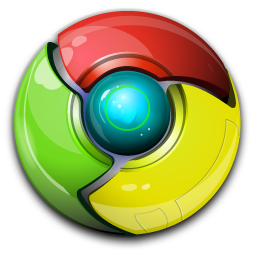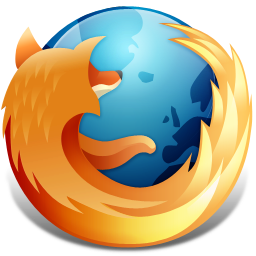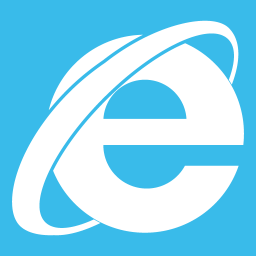You might not know it, but...
Programmers all over the world absolutely hate Internet Explorer
(And now Edge as well)
Why? Because it causes just no end of grief, for programmers and web designers and for the average computer user, whether he knows it or not
U.S. & U.K. Governments recommend not using Microsoft's Internet Explorer
(So there...)
Concerning Microsoft's new
Edge browser
(Short version: the world's slowest browser
just got slower...)

First, because a surprising number of people don't know it, there are dozens of browsers available. The industry often talks about the Big Five, but even that's way short of reality. FireFox is the most popular, and Google Chrome is the fastest. But all Windows computers come with only one browser ready to use and it happens to be the worst of the Big Five (big 10, big 20). Irony. As ironic as all Windows computers coming with Norton or MacAfee anti-virus preinstalled, which are so bad they don't even make the top 10 anti-virus systems. [Even worse, Windows 8 and 10 now have anti-virus built in, but the Feds have told Microsoft that they can't tell people about it. A free antivirus, built-in, and you are supposed to pay for a vastly inferior one. Some how that's "fair trade." Fair to whom?]
IE is deathly slow. It's very cranky. Of all the browsers most people use (see list below) it is the most difficult for a programmer to make his web pages and internet applications work with. You have no idea how much code a programmer ends up adding to a web page just to make it "behave" correctly under IE. Even this page has special code added to it to make things display correctly in IE.
and even duct tape can't fix that
The irony, too, with IE is that every single new version is worse than the one before. They constantly fail to live up the hype and claims. Every time Microsoft says "now fully compatible," programmers cringe, because we know what that means, by now. Something about the little boy who cried wolf happening here. A web page ends up with special code for IE version 7, version 8, version 9, version 10 and now version 11. (11 is the worst of all in some ways.)
Until IE10, there was at least an easy way for the programmer to detect when his web page was being viewed in Internet Explorer, but now Microsoft has taken that away. There is actually now no 100% perfect method for the programmer to know when IE is being used -- and so have the page provide the "fixes" specially required by IE, only 99% certain. So, effectively, Microsoft has made it impossible for web designers to make their pages perfect under IE. Woof... We really wish Bill was still running Microsoft. It's all gone to heck since he left.
Don't take our word for it! Take a look here:
- http://sixrevisions.com/infographs/browser-performance/
- http://www.w3schools.com/browsers/browsers_stats.asp
- http://www.howtogeek.com/howto/32372/htg-explains-why-do-so-many-geeks-hate-internet-explorer/
- http://nakedsecurity.sophos.com/2012/11/29/internet-explorer-sucks-less/
- http://lifehacker.com/5831344/the-best-web-browser-for-windows
- http://webdesignledger.com/tools/12-alternative-web-browsers-you-should-try
Want to hear a REALLY weird item? Web browser standards now include support for playing sounds. Well, the computer industry being what it is, there are several "standard" formats for sounds. One of them, the .wav format, was invented by Microsoft. All browsers except Internet Explorer support playing .wav sound files, which leaves us with no single sound format that all browsers will play. This means that to play sounds on a web page the web page designer has to include at least two different versions of each sound file, an .mp3 and a .wav, for instance. You can't make this stuff up -- as fiction, no one would believe it.
What's the deal with that?
Microsoft Edge (the "replacement" for IE) appears to have new sound issues. There are many reports that it won't play sound on YouTube posts, for Pete's sake. No response that's helpful from Microsoft. Further, Windows 10 fails on some "older" machines, when using Microsoft's own sound driver (!!), with no response from Microsoft on that one, either. "Sounds" like Microsoft has a seriously unsound issue around sound... At least, that's what we hear

So what's all this come down to? We strongly recommend that you use a different browser. Any of these are great. (They are listed by current popularity, as of the time of this writing.) They all have their strengths and weaknesses. Our own preference is shown (it's the fastest of them all, and starts up the quickest, as well). None of them are perfect, and your own preferences may vary.
Internet Explorer or Edge
Latest Twist from Microsoft: they changed the technical name of the Internet Explorer, the universal tag by which all software all over the world identifies that it's IE being used. Used to be "MSIE" and now they dumped that. This breaks millions of websites. You now have to look for MSIE and for "trident" (as of IE 11). Clearly (well... what it looks like, anyway) Microsoft is aware that programmers are trying to screen out IE from general use, and they are sabotaging that effort. Truly, if they simply cleaned it up, we'd all applaud and start being grateful for it again. <Sigh...>
Sad News about Safari: Apple's Safari browser is no longer being supported for Windows users. This is sad, because it was (is, really) a fine browser, carrying many features no other browser for Windows supported. Personally, we think that's a bad business move on Apple's part. But then the days of "Steve and Steve" are long gone for Apple, as are the days of "Bill" for Microsoft. [Bill had a vision; without him, all Microsoft has is stock holders. No vision any more, and it really shows.]
- Google Chrome ← (Our recommendation -- the fastest)
- FireFox [No longer the most popular; it's still a great system though.]
- Opera [Has some amazing user features in it.]
- Apple Safari [Oops! No longer supported for Windows. Dang it.]
It's also time to stop talking about the Big Five as if they are the only browsers of merit. They are not. They are simply the ones that make up (about) 90% of the browsers in use. (Though that's a very rough estimate, as those folks who track such things tend to track "the big five" and then put everything else into a "miscellaneous" pidgeon hole, which makes the stats kind of tricky, plus the fact that the last three releases of IE have changed the way you detect IE, so it's stats may now be wrong as well. Really... Microsoft is working against itself there. Does FireFox have a double agent on the IE developer staff?)
 SeaMonkey -- www.seamonkey-project.org/
SeaMonkey -- www.seamonkey-project.org/
SeaMonkey consists of a web browser (SeaMonkey Navigator), which is a descendant of the Netscape family,
an e-mail and news client program (SeaMonkey Mail & Newsgroups, which shares code with Mozilla Thunderbird),
an HTML editor (SeaMonkey Composer) and an IRC client (ChatZilla). The software suite supports skins.
It comes with two skins in the default installation, Modern and Classic
 Maxthon -- www.maxthon.com
Maxthon -- www.maxthon.com
Maxthon (officially called Maxthon Cloud Browser, originally known as MyIE2) is a freeware web browser
for Windows, OS X and Linux that is developed in China by the company Maxthon Ltd. It is also available
on Windows Phone 8, iOS and Android platforms as Maxthon Mobile. Since the release of version 3,
Maxthon supports both the Trident and the WebKit rendering engines.
 Avant -- www.avantbrowser.com
Avant -- www.avantbrowser.com
Avant Browser is a freeware web browser from a Chinese programmer named Anderson Che, which unites the
Trident layout engine built into Windows (see Internet Explorer shell) with an interface intended to be
more feature-rich, flexible and ergonomic than Microsoft's Internet Explorer (IE). It runs on Windows 2000
and above, including Windows 8 and Windows 8.1. Internet Explorer versions 6 through 9 are supported.
Version 2012 (released October 2011) was separated in two editions: Ultimate edition, which added the Gecko
layout engine (used by Mozilla Firefox), allowing the user choose between both layout engines, and Lite
edition which contains only the Trident layout engine.
 Torch -- www. torchbrowser.com
Torch -- www. torchbrowser.com
Torch Browser is a free, ad-supported, closed source, Chromium-based web browser and Internet suite developed
by Torch Media. The browser handles common Internet-related tasks such as displaying websites, sharing
websites via social networks, downloading torrents, accelerating downloads and grabbing online media, all
directly from the browser. Torch Browser is commercial freeware.
Torch is based on the Chromium source code. Torch's most recent version 36.0.0.8253 uses Chromium version
38, making it compatible with all add-ons and extensions available in the Chrome store.
On June 18, 2013, Torch announced that it had surpassed 10 million active users.
Microsoft's new "Edge" browser is an unfortunate disappointment. Most surprising, it's
even slower than IE! This was Microsoft's chance to reclaim the browser market for themselves, and
they managed to not do it. How could you put out a (supposedly) new browser and end up with it's being slower
than IE? For Pete's sake... Check out the speed tests, available all over the internet. Be sure the report is
actually about the release version of Edge. Apparently the pre-release version ran considerably faster than the
"real" version ended up doing. Too bad. Between Windows 8, Windows 10 and now Edge, one gets the feeling that
Microsoft has totally lost its "edge" in this industry. Time for them to branch out into coffee makers or something.
Microsoft had a chance, with Edge and Windows 10, to reclaim some consumer and developer confidence: they failed.
It is regrettable, but it's time to move your loyalty elsewhere. Hopefully Google or the Linux consortiums, will
package a truly great alternate OS to the main stream consumer soon. (Linux has Windows work-alikes, but they are
not packaged for the main stream consumer at this time.)
In the meantime, Apple's OSX market share is growing.

Please! Stop using Internet Explorer / Edge. It is a waste of your own time, because of how slowly it runs, and a waste of valuable programmer hours all over the world. Latest estimates show that its market share is down to less than 6% anyway (at time of this writing). (Check latest here.) Raise your voice! Boycott IE as a criminal waste of programming resources, and, of course, you own time.

over-commericalized sewer, the computer industry needs new leaders with a True Vision for the Future.
Maybe You are one with that vision?
Thanks for your time and tolerance of our soap-box moment.











